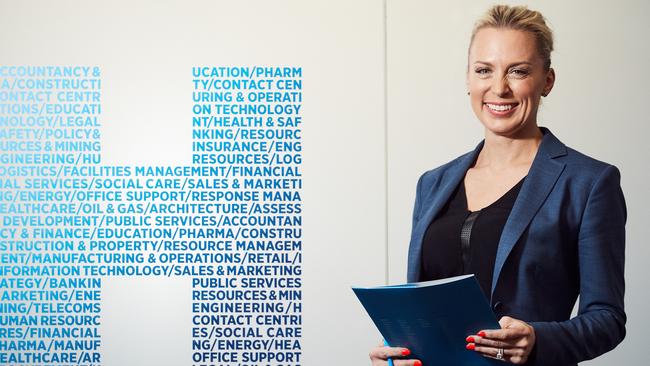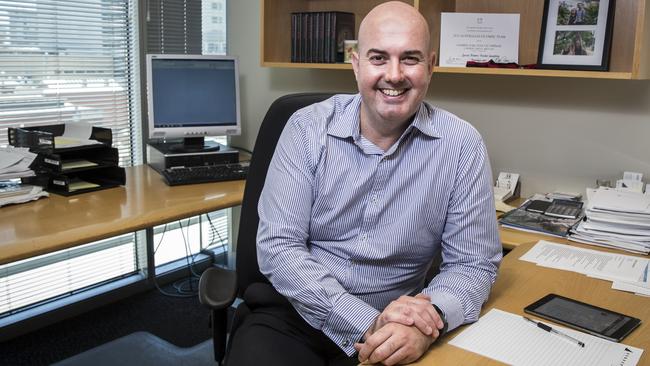Recruiters advise on dealing with stress at work caused by COVID-19
Each week, four recruiters give their advice on how to approach common work problems. This week, it’s how to deal with the stressful work environment caused by the coronavirus pandemic.
Careers
Don't miss out on the headlines from Careers. Followed categories will be added to My News.
- A new way for jobseekers and employers to be matched has been launched
- What is the Australian National Talent Registry?
CAREERS’ panel of expert recruiters answers a reader’s question each week. Have a question? Email careers_qs@news.com.au
My job has become more stressful since the COVID-19 outbreak – how can I build resilience to get through these uncertain times?
Lisa Morris
Director,
Hays
While I am not a psychologist, there are a few tips that I’ve developed over the years to build resilience and be successful at work. Right now, many people are working longer hours and going above and beyond to help keep the organisation they work for operating. To build your resilience in such times, it’s important to firstly remain positive. You can learn from the challenges at hand, so try to maintain a growth mindset rather than seeing the current situation as an impossible stumbling block.
It’s also important to keep the current market in perspective. Things will recover. While we can’t predict exactly when this recovery will come or how fast it will happen, uncertainty will eventually pass. So, don’t jump to conclusions, but instead remain flexible and willing to adapt to the changes occurring around you.
You should also maintain open communication with your colleagues as their support can help build your own resilience. Crucially, keep up a healthy work/life balance. If you are working from home, find time to exercise and switch off at the end of each day so you have the energy required to get you through tomorrow.

Justin Hinora
Executive consultant,
Hender Consulting
It’s important to accept and embrace this change in landscape. The world around us and reality itself has changed, so it’s necessary that we change and adapt also. Maintaining a purpose and structure in your work/life is very important. Try and focus on the positive aspects of the situation. Realise that it is challenging for others as well. Stay connected to your colleagues and support each other. Create goals and objectives and take a structured approach to achieving these. While there has been a focus on the bad things associated with the pandemic, there has been a lot of good. For example, providing tools/resources that did not exist to enable people to work remotely.

Andrew Sullivan
Managing director,
Sullivan Consulting
One aspect of building resilience is developing strong working routines that can provide stability despite changing ways of working. For example, if you’re new to working remotely, try to keep the same hours as you would at the office and give yourself clear boundaries around work. One suggestion is to do something relaxing every day to mark the end of the work day, just as a commute ordinarily would. Stay in touch with colleagues, peers, family and friends, even if it’s just a short phone call once a week. If you’re feeling stressed or overwhelmed, your employer may have online or phone services as part of their employee assistance program or other organisations provide these services as well.

Alexandra Rosser
Head of Organisational
Psychology Consulting,
Stillwell Management
Consultants
Start by developing a baseline of robust physical health by getting enough sleep, eating nutritiously, exercising and avoiding stimulants/depressants. Accept, but don’t succumb to, negative thoughts and emotions and try to discipline yourself to invest as much of your energy as possible into thoughts and actions that seek to sustain or improve your work, home life and wellbeing, rather than getting stressed about things you cannot control or influence. Limit exposure to media about COVID-19: this incudes reading others’ Facebook and Instagram posts.

MORE NEWS
Why some people do not want to return to the office after working from home
How to gain skills to talk about in job interviews
Save money when returning to the workplace
News Corp has partnered with HR technology company Shortlyster to develop the Australian National Talent Registry, an initiative to help get Australians back to work, as COVID-19 has left hundreds of thousands of people either jobless or with reduced working hours.
The registry aims to connect jobseekers, whose employment does not have to have been directly affected by the coronavirus pandemic to participate, with employers on cultural-fit and psychological level, not just qualifications and experience.
It is free for jobseekers to sign up. To sign up, visit adelaidenow.com.au/careers
